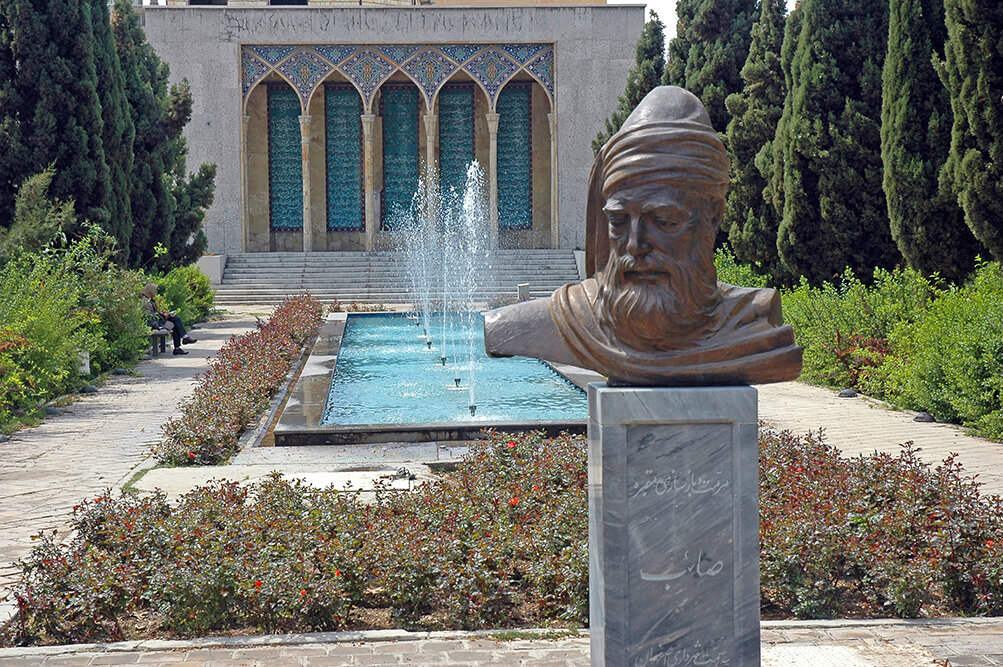Saeb Tabrizi to be commemorated in Tehran

TEHRAN-The House of Humanities Thinkers in Tehran will host a commemoration ceremony for the great Persian Poet of the 17th century Saeb Tabrizi on Monday.
Mahmoud Fotouhi Rudmajani, a professor of Persian Literature and Language; Houman Yousefdehi, a researcher in the field of history and literature; and Bahman Banihashemi, a poet and literary critic will speak at the event, ISNA reported.
Saeb (1601-1677) was one of the greatest masters of a form of classical Arabic and Persian lyric poetry characterized by rhymed couplets and known as the ghazel.
He was born with the name Mirza Mohammad Ali in Tabriz during the Safavid era. Saeb's father was the wealthy and prominent merchant Mirza Abd-al-Rahim, while his paternal uncle was Shams-al-Din of Tabriz, skilled in calligraphy, for which he received the nickname Shirin Qalam (literally meaning Sweet Pen).
As a result of attacks by the Ottoman Empire, many families, including those of Saeb’s, were evacuated from Tabriz by Shah Abbas I, who moved them to the Abbasabad neighborhood in Isfahan. It was in this location that Saeb spent his childhood. He received his education at home and started engaging in poetry exercises when he was a little child. In his youth, he made pilgrimages to Mecca, the Imam Reza shrine in Mashhad, and the Shia shrines in Najaf and Karbala.
In 1626, he traveled to India, where he was received into the court of Shah Jahan. He stayed for a time in Kabul and Kashmir and returned home after several years. After his return, Shah Abbas II bestowed upon him the title “King of Poets”.
Saeb’s reputation is based primarily on some 300,000 couplets, including his epic poem. His Indian-style verses reveal an elegant wit, a gift for the aphorism and the proverb, and a keen appreciation of philosophical and intellectual exercise. In addition to his remarkable output of Persian verse, Saeb wrote poetry in Turkish. His mausoleum is located in Isfahan.
Biographical literature is abundant with references to the admiration of Saeb by both his contemporary and later readers. When discussing Saeb, his contemporary Mohammad Taher Nasrabadi mentions that “the sublimity of his genius and extent of his fame needs no description”.
The admiration for Saeb's literary accomplishments persisted in most Persian-speaking regions throughout the 19th century.
Photo: Saeb’s mausoleum in Isfahan
SS/SAB
Leave a Comment